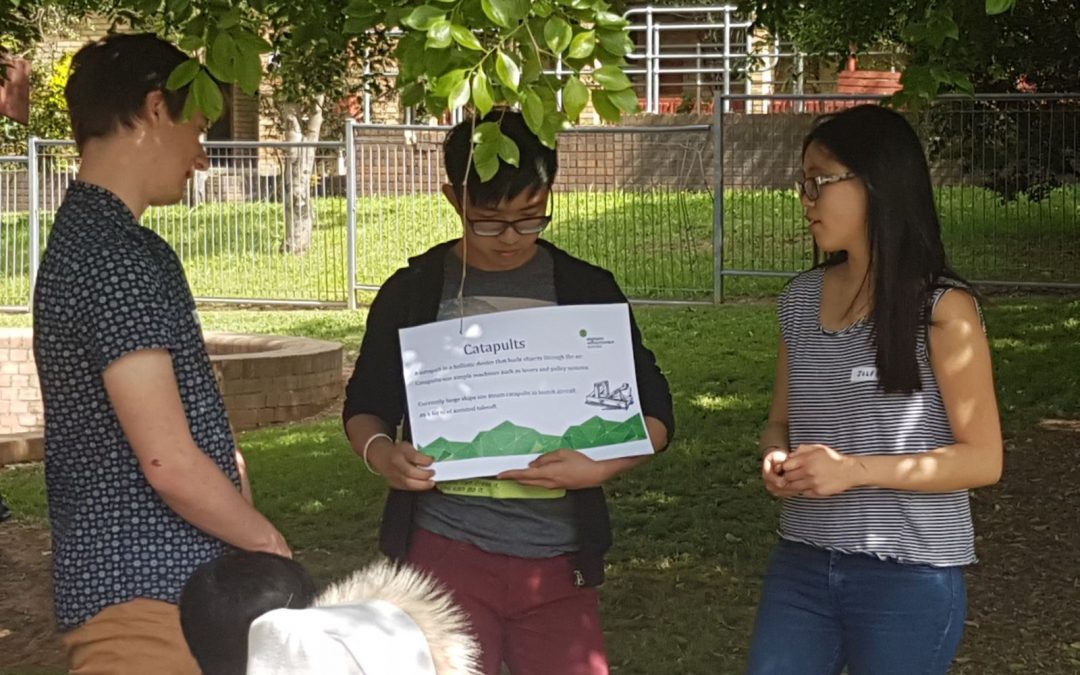Sudanese Australian Integrated Learning (SAIL) is a non-profit, volunteer-run program that provides free English tutoring support and community services to the Sudanese Australian community.
Written by Matilda Bowra.
SAIL was started in Melbourne 16 years ago and is now also well established in Sydney and Perth. The philosophy behind SAIL is one of inclusiveness. It was founded on the premise that regardless of background, everyone should be welcomed, cared for and given the opportunity to have “the key to the door of Australian society.”
Engineers Without Borders Australia (EWB) has had a long association with SAIL in Melbourne and Perth. The original EWB/Victorian SAIL partnership was established in 2009 and has been managed for the last three and a half years by long time EWB volunteer and Civil Engineer at Arup, Priyani Madan.
“I took over the EWB/SAIL partnership in Melbourne in 2013. Back then is was just the Spokes in the Wheel program – fixing bikes for Sudanese kids and training them how to ride safely. Over the last few years, I have strengthened the partnership and expanded the program by taking High School Outreach workshops and adapting them for the community.”
“We’ve had feedback from the SAIL coordinators that these programs really build the confidence of the students. They give them a chance to meet adults with tertiary education who are in professional jobs, expose them to engineering and different career paths and provide a support network that believes in them and gives them inspiration,” says Priyani.
The success of the Victorian partnership inspired EWB NSW to set up a partnership with SAIL in Sydney. The EWB/NSW SAIL partnership is coordinated by EWB members Suzanne Mustafa, Claudia Williams and Ashvittha Santhaseelan.
Claudia, who works as an Operations Engineer at Infigen Energy, says as the partnership is quite new, this year is all about getting to get to know each other and exploring ways EWB can support SAIL in Sydney.
At the end of last year, the EWB coordinators started running School Outreach workshops with the tutors and children who come in for English tutoring on Saturday mornings. The aim is to run one workshop per term at each of the SAIL Sydney campuses in Seven Hills and Blacktown.
The workshops encourage the use of appropriate technologies to solve engineering problems, while also helping the participants to gain global awareness of issues faced by developing communities.
“The idea was to engage children and show them a fun way of learning, get them excited about science, technology, engineering and maths (STEM) subjects and open their eyes to where those subjects can take them,” explains Claudia.
She says the opportunity to work with a community group she wouldn’t normally have contact with attracted her to the program.
“Diversity is a great part of EWB. SAIL gives you an opportunity to learn from the Sudanese community and be able to support community groups to feel more connected while also using your engineering background in a very positive way,” says Claudia.
The feedback so far has been very positive. EWB volunteers have found the children really enthusiastic while the tutors say the workshops are a good way to engage the students and have requested follow up activities. Claudia and her fellow coordinators responded by developing complimentary worksheets.
Rhett Wilcox, an economics consultant, who is one of the volunteer coordinators for SAIL’s Seven Hills Campus, says, “It’s been great working with EWB. They made technical subjects accessible and appealing to both boys and girls of varying ages and backgrounds. We found that the kids really enjoyed the hands on and competitive nature of the activities, and it opened their eyes to the world of engineering and how maths can be applied in real life.”
The NSW EWB/SAIL coordinators believe the partnership will continue to evolve and change to meet the needs of SAIL in NSW.
In the immediate future, the coordinators would like to see a greater diversity of volunteers. At present, the SAIL School Outreach workshops are run by between five and ten volunteers, most of whom are university students.
“It’s important to have a range of experience in the people involved in all levels of partnerships to get different perspectives and different experiences,” explains Claudia. “We want to tie in with the greater EWB community so we’ve been looking at how we can advertise the volunteer opportunities to get a broader mix of both university and professional EWB members.”
Although Claudia is new to EWB, she says, “I’m enjoying learning how community partnerships work and developing skills that I would not have got through my current job such as what you need to keep in mind when you approach a community partner, flexibility, negotiating skills, empathy and how to get volunteers on board. It’s been an interesting and useful experience. As an engineer, you have to engage a variety of stakeholders and knowing how to do that is really important.”
EWB has many opportunities for volunteers to use their professional skills to support community groups.
Contact your local chapter to learn more.


